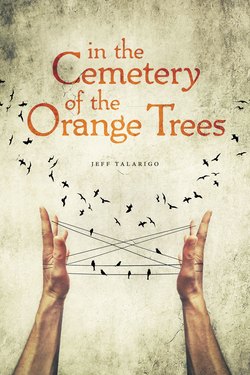Читать книгу In the Cemetery of the Orange Trees - Jeff Talarigo - Страница 14
На сайте Литреса книга снята с продажи.
ОглавлениеMuch of the time in those early days they keep the American in the house, for his safety as well as theirs. Each day they take a walk up and down School Street, sometimes, for a short while, they sit against the wall across the way.
Inside he whittles away the plodding climb and descent of the days. For the most part he stays in the back room, where the men sleep. In his notebooks he writes what he hears: of the footsteps in the alleyway, of cars and donkey carts passing up and down the street, the calls to prayer, the thrum of voices speaking words he does not understand.
At night, while the others are asleep, he eavesdrops on the sounds, imagining what it is like out there during curfew, where, he has been told, that if one is caught they are arrested or shot. Sometimes he hears voices from the neighboring houses or a television or radio.
Often on these nights, while finding it difficult to sleep, he hears Bassam, the eldest brother, get up and go from the sleeping room, where there are six men on mats side by side, from wall to wall. Bassam goes into the common room and paces. The American has heard from others, although not from Bassam himself, that Bassam has spent more than eleven months in prison; the American wonders if this is why he cannot sleep. The American listens to the sliding feet, then the pause when Bassam stops and lights a cigarette, again the pacing. In and out of sleep he fades, waking to the sound of shuffling feet.
Shafiq, the only veterinarian in Gaza, introduces the American to his grandfather, Zajil, a famous storyteller well into his eighties, who only tells stories when paid by cigarettes. Each time the American visits the old man he brings with him a pack of cigarettes. He lights one and hands it to Zajil and, like that, for a short, magical time, coherent words and stories are once again a part of his life.
Before Zajil tells the American his stories, he begins with the same words:
“We are all exaggerators of the truth, stretchers of stories, sometimes outright liars even. But our exaggerations, our stretches, our lies, are ours and that is why we must believe them, for they are the only things we can call our own.”
